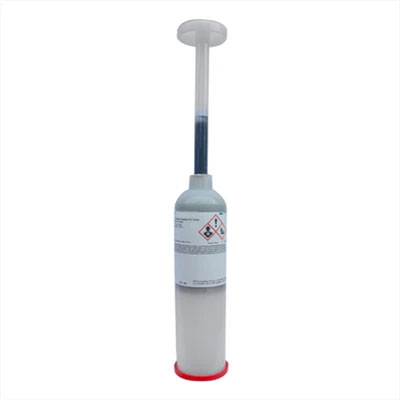What Is GMS4113 Class B-2, and Why Is It Important?
If you’ve come across the term “GMS4113 Class B-2,” you’re likely diving into the realm of materials or product classifications. So, let’s get down to it: what exactly does it mean? Why should you care?
Simply put, GMS4113 Class B-2 refers to a specific classification system for materials used in certain industries, often involving electronics or manufacturing processes.
It’s not just some random code—it’s a standard that ensures consistency and reliability across products. If you’re looking to understand the nuances behind it, you’re in the right place. Keep reading to see how this classification plays a pivotal role in various sectors.
Breaking Down the Key Features of GMS4113 Class B-2
When you see “GMS4113 Class B-2,” you might be wondering, “What’s so special about it?”
Let’s break it down in simple terms:
- GMS4113 is a code that refers to a specific set of requirements or characteristics related to the material or product.
- Class B-2 refers to a subgroup within that code, which narrows down the material’s classification based on factors like durability, electrical properties, or how it’s tested.
For example, in electronics, materials are classified based on how well they resist heat, handle electrical conductivity, or withstand stress. Class B-2 could refer to materials with a certain level of resistance to heat or a specific range of conductivity, depending on the industry it’s used in.

Real-World Example of GMS4113 Class B-2 in Action
Let’s say you’re working with circuit boards for a high-performance device.
You’ll likely use materials that meet specific standards, such as GMS4 113 Class B-2, because you need consistency in performance, especially under challenging conditions like high temperatures or electrical load.
For instance, a company that manufactures electronics might use GMS4113 Class B-2 certified materials for components that require high heat resistance but also need to maintain certain electrical properties.
If the materials are not up to spec, the whole device might malfunction, leading to costly repairs and customer complaints.
Why Should You Care About GMS4113 Class B-2?
Now that we’ve got the basics down, you might still be wondering, “Why is this so important?”
Well, when it comes to manufacturing and electronics, everything revolves around precision. You need materials that meet specific criteria, not just for performance but also for safety and durability.
- Consistency: GMS4113 Class B-2 ensures that the materials you’re working with will behave predictably under certain conditions.
- Compliance: Whether you’re creating medical devices, electronics, or industrial machinery, using certified materials is a must. These standards ensure that your products are compliant with industry regulations.
- Reliability: You’re not just trusting a material’s performance based on a label; you’re trusting a system that has been designed to minimize failure.
The Process Behind GMS4113 Class B-2 Certification
The certification process for GMS4 13 Class B-2 materials isn’t something that happens overnight. It involves a series of tests and evaluations.
Here’s a simplified breakdown of how it typically works:
- Testing: The material is subjected to a variety of tests that assess its electrical, thermal, and mechanical properties.
- Evaluation: Experts evaluate how the material holds up under real-world conditions, such as high heat, humidity, or stress.
- Certification: If the material meets the required standards, it’s awarded the GMS4113 Class B-2 designation.
Key Industries That Use GMS4113 Class B-2
GMS4113 Class B-2 isn’t just for one industry. It’s used in several sectors, especially those that require high-performance materials.
Here are a few industries where this certification is commonly seen:
- Electronics: From circuit boards to microchips, materials must meet strict standards to ensure longevity and reliability.
- Automotive: Many automotive components are subjected to extreme conditions, so using certified materials like GMS4113 Class B-2 ensures safety and performance.
- Aerospace: Components used in aviation need to be highly durable and able to withstand tough conditions, which is why GMS4113 Class B-2 certification is often required.
- Medical Devices: Medical products need to meet high standards for safety, and GMS4113 Class B-2 materials can help ensure reliability.

Common FAQs About GMS4113 Class B-2
What’s the difference between Class B-2 and other classes in GMS4113?
Class B-2 typically refers to a specific set of properties, such as heat resistance or mechanical durability, which may differ from other classes under GMS4113 that focus on different criteria.
How do I know if a material is certified GMS4113 Class B-2?
The material should come with certification from a recognized authority or testing body. Always ask for proof of certification when sourcing materials for your projects.
Why is GMS4113 Class B-2 so critical for electronics?
In electronics, components need to function reliably over time, even under high temperatures or electrical stress. Class B-2 materials are tested to ensure they can handle these conditions without failing.
Can I use materials without this certification?
While you technically could, using materials that don’t meet established standards like GMS4113 Class B-2 can lead to unpredictable performance or even failure. It’s always better to go with certified materials for peace of mind.
Wrapping It Up: The Importance of GMS4113 Class B-2
In the end, GMS4113 Class B-2 is all about ensuring that materials perform consistently and reliably across various industries. Whether you’re working with electronics, automotive components, or medical devices, using certified materials like those classified under GMS4113 Class B-2 can make all the difference.
When you choose to use these standards, you’re investing in quality, safety, and performance that you can trust.
The next time you see the term GMS4113 Class B-2, you’ll know it’s not just a random label—it’s a key that unlocks the potential for better, safer products.














Post Comment